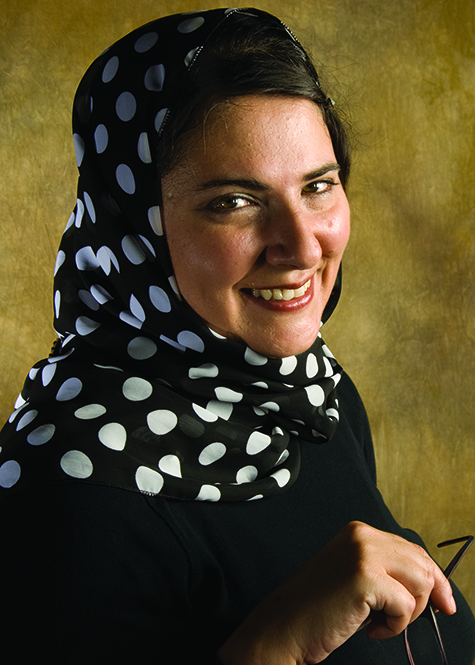FAYETTEVILLE, Ark. — Mohja Kahf, an associate professor of comparative literature at the University of Arkansas, will represent the Syrian Nonviolence Movement at a news conference scheduled for Friday, Jan. 10, in New York City.
Kahf will join doctors, faith and human rights leaders to announce an International Solidarity Hunger Strike for Syria. They will also demand a lifting of a military “starvation siege.”
The event will be held at the United Nations office of the Bahá'í International Community.
Kahf, a poet and Syrian activist, said she is traveling to New York “because the Syrian grassroots' call to freedom is the call I have been waiting to hear from Syria all my life.”
“That whole city populations of civilians, including children, are being punished by starvation for claiming their rights as human beings is ethically unbearable besides being a ghastly violation of international legal conventions,” said Kahf, who is also a faculty member in the King Fahd Center for Middle East Studies at the university.
“People of conscience everywhere must say ‘no’ and must say it in resounding international chorus, and must make it binding through a United Nations resolution with an enforcement and monitoring mechanism,” she said. “I am going in order to add my voice to this ‘no’ as loudly as I can, for myself and for the Syrian Nonviolence Movement.”
The International Solidarity Hunger Strike for Syria will be a major global campaign, according to the event’s organizers. The speakers at the press conference will include representatives of several organizations, including Human Rights Watch, the Syrian American Medical Society, Muslim Public Affairs Council and the Interfaith Center of New York.
The group will demand, among other things, a binding resolution from the United Nations Security Council to require unhampered access, across borders and military lines, for international humanitarian agencies to bring food and medicine to besieged populations in Syria, with neither preconditions nor discrimination based on sect, ethnicity, gender, or political views, with a monitoring provision to ensure compliance.
An estimated 1.5 million Syrian civilians are dying of malnutrition and treatable diseases in an entirely preventable humanitarian crisis, according to a news release. Military forces blockade dozens of Syrian towns, barring entry of food and medicine, according to the release.
Topics
Contacts
Mohja Kahf, associate professor of comparative literature
English
479-283-5081, mkahf@uark.edu
Chris Branam, research communications writer/editor
University Relations
479-575-4737,
cwbranam@uark.edu
